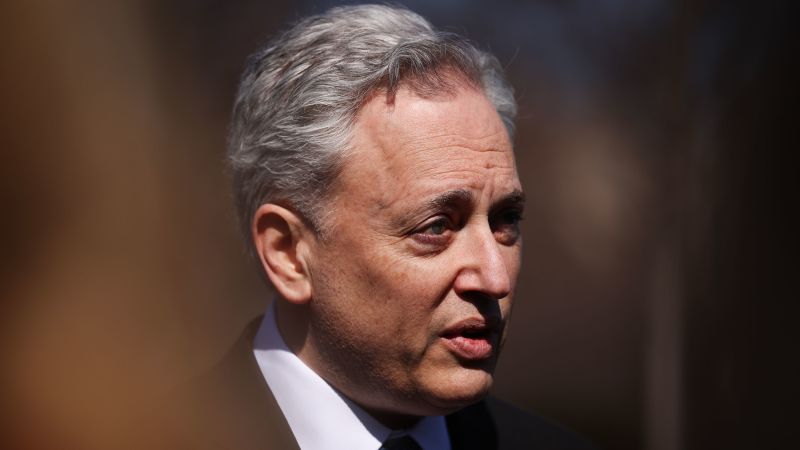**The Future of AI and Employment: Diverging Perspectives**
Artificial Intelligence (AI) continues to stir debate among experts, policymakers, and the tech community, particularly regarding its potential impact on employment. Recently, David Sacks, the White House AI czar, expressed optimism about AI’s role in the economy, countering fears of massive job losses. During a speech at the Amazon Web Services summit in Washington, D.C., Sacks stated, “Personally, I don’t think it’s going to lead to a giant wave of unemployment.” He asserted that while AI can automate tasks, it is “very hard to replace a human job entirely,” indicating that AI would more likely complement jobs rather than completely eliminate them.
Sacks’s comments serve as a direct rebuttal to the concerns voiced by AI leaders like Dario Amodei, CEO of Anthropic, who warned that the rise of AI could significantly impact the job market, potentially wiping out as much as half of entry-level, white-collar jobs within the next five years. In a candid conversation with CNN’s Anderson Cooper, Amodei expressed his apprehension regarding societal adaptation to the rapid pace of AI innovations. He highlighted that “AI is starting to get better than humans at almost all intellectual tasks,” stressing the urgency for policymakers to be aware and proactive about the challenges ahead.
Despite differences in their perspectives, both Sacks and Amodei acknowledge the impending changes wrought by AI. Sacks labeled certain pessimistic views as part of a “doomer cult,” which he believes misjudges the potential for AI to drive economic growth. He suggested that AI could elevate the economic growth rate to an impressive “4 or 5%,” hinting at an emerging “AI boom” that could serve as a powerful tailwind for future economic expansion.
However, Sacks did not discount the challenges that accompany such transformation. He recognized that while AI has the potential to create new opportunities, it could also displace existing jobs, particularly for lower-wage workers and entry-level positions. “There will be some retraining that is required for students and workers, and I don’t want to minimize that,” he said, which reflects a growing consensus about the need for educational and training resources to address the changes in the job landscape.
Public sentiment mirrors these complex perspectives. A recent survey by the Pew Research Center revealed that nearly two-thirds of U.S. adults are concerned that AI will lead to fewer jobs over the next two decades, with over half expressing significant anxiety regarding job losses due to AI. This widespread apprehension could influence attitudes toward AI regulation and innovation.
Moreover, the national security implications of AI technology have not escaped notice. Sacks pointed out that maintaining a competitive edge in AI is paramount, citing concerns that China is advancing rapidly and is only “three to six months behind” the United States in AI capabilities. This assertion underscores the urgency for policymakers to prioritize AI development while ensuring societal protections against possible job displacement.
In the backdrop of these discussions, the broader context of political maneuvering around AI regulation emerges. President Donald Trump is reportedly pushing for substantial domestic policies that include a 10-year moratorium on enforcing state AI regulations. Critics, including academics and advocacy groups, warn that this could hinder necessary safeguards against the societal impacts of AI technology.
As this dynamic evolves, many stakeholders remain optimistic about the transformative potential of AI to drive innovation in various sectors. Amodei himself envisions significant benefits that AI could bring, such as possible breakthroughs in medical science, including cancer cures. However, the dual-edged nature of this optimism is evident, as he also worries about its implications for job security.
Ultimately, experts like Sacks advocate for proactive engagement with AI technology rather than resistance. “It’s kind of like telling the tides to stop,” he remarked, emphasizing that the evolution of AI is inevitable, and the best approach is preparation and adaptation. In the ongoing discourse around AI and its economic implications, the focus should be on leveraging its potential while safeguarding the societal fabric.



